Should the US make a Chinese company sell TikTok?
This is a very close call. And as someone whom the White House specifically targeted for my social media posts, I have a unique perspective on Biden Administration claims of "disinformation."
I can’t stand TikTok.
My kids use it, though I wish they wouldn’t. (If you wonder why they do despite my objections… recall I am not their only parent.)
If you don’t know: TikTok is a social media app that serves an endless stream of user-generated short videos. It’s proven hugely successful, becoming the only real challenger to YouTube and Instagram. Its secret, its evil genius, is the way it largely removes conscious choice from its users.
Just download the app and the video drip begins.
Based on your response to each video, TikTok serves you more videos it believes you will like. Its guesses, now refined off trillions of user views, will likely be right. As TikTok itself explains, “even when two users follow the same set of creators, each feed will rank and serve content in a way that is tailored to how you use TikTok.”
—
(No TikTokers were harmed in the making of this article.)
—
The brevity of the videos mean they inevitably prioritize feeling and humor over complexity in storytelling or character. And they are just as corrupting for nonfiction storytelling - that is, journalism.
If long-form video is a meal, TikTok is a cracker. You reach for another, and another, until the box is empty and you’ve gained two pounds. I’ve been watching videos of a Chihuahua running around as a guy chants “I am strong! I am fierce! I am Chi-wah-wah!” over and over for an hour, what is happening to me?
The algorithm that TikTok uses to present videos is intentionally opaque, except that it is designed to keep people staring at the screen as long as possible. Of all the apps ruining our ability to think and interact with each other, TikTok is the worst.
—
(Look closely and you’ll see the devil’s horns.
Kidding! I think…)
—
But the current fight over TikTok has less to do with what TikTok is than who controls it. Because ByteDance, the company that makes TikTok, is — do I even have to say it, do I have to say the C-word? — well, it’s Chinese.
In 2020, Democrats and the media essentially barred anyone from discussing the possibility the novel coronavirus had leaked from a Chinese lab. Doing so was a sign of anti-Asian prejudice, they said.
But we’re not in 2020 anymore. A Democrat is President, not that naughty Donald Trump, who had the nerve to call a virus that emerged from China the “China virus.”
—
(So many experts, so many warnings.)
—
Thus reporters can once again admit the People’s Republic of China doesn’t always tell the truth about exactly what’s happening inside its borders. Or outside them.
TikTok has over 150 million American users - around half of all Americans - and is ubiquitous among people under 30. It hoovers up data about those people. It has been accused for years of presenting “misinformation” or “disinformation” on subjects important to the Chinese government, including Taiwan and Tibet.
The United States Army became concerned enough about TikTok by late 2019 that it banned the app from all military-owned devices as a threat. By 2023 that ban had been expanded to all devices owned by government agencies or their contractors.
So.
Now that we all agree China may not be the best friend the United States of America has ever had, what - if anything - do we do about the fact ByteDance owns TikTok?
This question has exploded since last week, when the House of Representatives overwhelmingly passed a bill to make ByteDance sell TikTok to a non-Chinese company within six months - or face a ban of the app in the United States.
But the answer is not as simple as it first seems.
(To hear what I think, and why, subscribe now. Or wait a week.)
At a time when the House is so badly divided that it can barely pass basic government spending bills, the TikTok divest-or-ban bill gained bipartisan support.
The 352-65 vote shows just how suspicious American lawmakers have become both of China and of social media apps.
They are right to be.
Let’s all agree to ignore ByteDance’s promises to segregate its American operations from Chinese control even if Beijing and Xi Jinping, China’s maximum leader, demand otherwise.
In reality, ByteDance will have no choice but to do what Xi wants. Xi is the most powerful leader of the People’s Republic since Mao Zedong. Standing up to him, or even modestly annoying him, is a one-way ticket to (at best) internal exile, as China’s top executives have found out the hard way. And China’s internal control of its Internet would make Andy Slavitt blush. It has banned its citizens from using YouTube, Facebook, Google, and Instagram for years.
—
(There’s no business like… well, there’s just no business. Not if Xi says there isn’t.
ALT: That’s what Xi said! Never gets old, amirite?)
—
But that fact doesn’t stop the United States from doing lots of business with China.
It imports close to $600 billion in iPhones, toys, lamps, squid, and everything else from the People’s Republic each year. The American trade deficit with China totals almost 2 percent of the United States economy.
Why should TikTok be an exception?
At least four concerns have merged to fuel the anger at TikTok and ByteDance. To understand whether divesting it makes sense, they should be examined separately.
The first two relate to the use of TikTok for spying.
First, is TikTok a Trojan horse China can use to steal sensitive or classified data from the military or other government agencies?
This risk is clearly real. It should be addressed, and it has been. Federal employees or contractors with access to sensitive information are banned from having TikTok on their phones or other devices.
Corporate executives, scientific leaders, and anyone else with information China might want should also be discouraged from using TikTok on their personal devices.
Second, could China use TikTok more broadly to capture information like movement or biometric data like faceprints and voiceprints on the mass of Americans who use it? Again, that risk is real. TikTok’s user agreement even allows it to collect such biometric data, although in a 2022 Senate hearing it claimed it does not do so.
Even if TikTok is collecting such data, and even if China accesses it, the risks to Americans and American national security may be more theoretical than real. Collecting huge biometric databases is easier than making good use of them, and it is not as if China can use faceprints to police American cities. If that day ever arrives, the United States and world will have far larger problems than TikTok.
Both the narrow or the broad spying risks weigh in favor of divestiture, but by themselves I don’t think they’re enough make ByteDance sell TikTok.
—
The third issue is not the flow of information through TikTok to China but the reverse: that is whether China will use the app to spread “disinformation.”
This concern seems to be driving the divestiture efforts - and it is the one that should be viewed with the most suspicion. The anger at TikTok accelerated in the weeks after the Hamas attacks on Israel, when the platform popularized a November 2002 screed from Osama bin Laden that attacked the United States for supporting Israel:
The British handed over Palestine, with your help and your support, to the Jews, who have occupied it for more than 50 years; years overflowing with oppression, tyranny, crimes, killing, expulsion, destruction and devastation…
—
(Cat videos and al Qaeda propaganda, it’s one-stop shoppng!)
—
But the key question isn’t whether TikTok carries information that some people, or many people, find obnoxious or offensive. It does, just like X and every other major social media site.
The question is whether TikTok is promoting what looks like propaganda, about Hamas or Tibetan independence or anything else - and if so what, the federal response should be.
So is TikTok is promoting politically charged content? The algorithm TikTok uses is opaque, so outside have essentially no way of knowing. Like it or not, Hamas and support for Palestine are very popular among young people, especially on the left. And the “Letter to America” is just the kind of short hey-did-you-know-that history factoid perfect for TikTok, a video version of the listicles that Buzzfeed once popularized.
But TikTok is at its core an app for entertainment, not journalism. It has become a news source for young people because it’s where they are, not because it wants to deliver news. And it has become well aware of the risks of becoming too politicized. By mid-November, it had actually banned the “Letter to America.”
—
More importantly, if the last three years have taught us anything, it is that “misinformation” and “disinformation” have become terms that people in power use to try to hide facts, data, reporting, or opinions they do not like. And, at least in the United States, the left is far more aggressive than the right about claiming “disinformation” as an excuse for suppression.
At the same time, the federal law known as Section 230 gives all social media companies the rights of a publisher or network with none of the responsibilities. They are immune from lawsuits for whatever content they carry. TikTok is simply taking advantage of that protection, as American-based social media companies do.
Thus lawmakers have decided that Americans and the United States are so powerless against TikTok that their only solution is to force it into American hands. But would letting former Goldman Sachs investment banker Steven Mnuchin control TikTok under same rules really be a huge improvement?
—
(Yep, this guy. And his wife.)
—
In the end, the answer is probably yes, barely. Even an unaccountable American owner of TikTok is better than an unaccountable owner under Chinese control.
But make no mistake, the real problem is Section 230.
The fourth and final reason to force ByteDance to divest TikTok is the least discussed but in some ways the most logical.
China won’t let American technology and social companies inside its borders, depriving them of an large and profitable market. Why should the United States give a Chinese company free rein to compete for American consumers? Information technology is one of the few sectors left where the United States has a huge edge, and this is a case where a good old-fashioned trade war might make sense.
—
So. When I started this piece, I leaned toward saying ByteDance should be allowed to keep TikTok - mainly because of my concerns with letting the government define “misinformation” or “disinformation” and punish companies for it.
But.
After a week of thought, I’ve convinced myself that even without those concerns, the spying and trade war issues are enough that a ban is warranted. It’s a close call, but the United States really gets nothing from allowing China to dominate TikTok. There’s only downside, no upside, and we don’t owe our friends in Beijing anything.
How about this? Let them come clean about the lab leak and they can keep TikTok.
I’m sure they’ll jump at that deal.




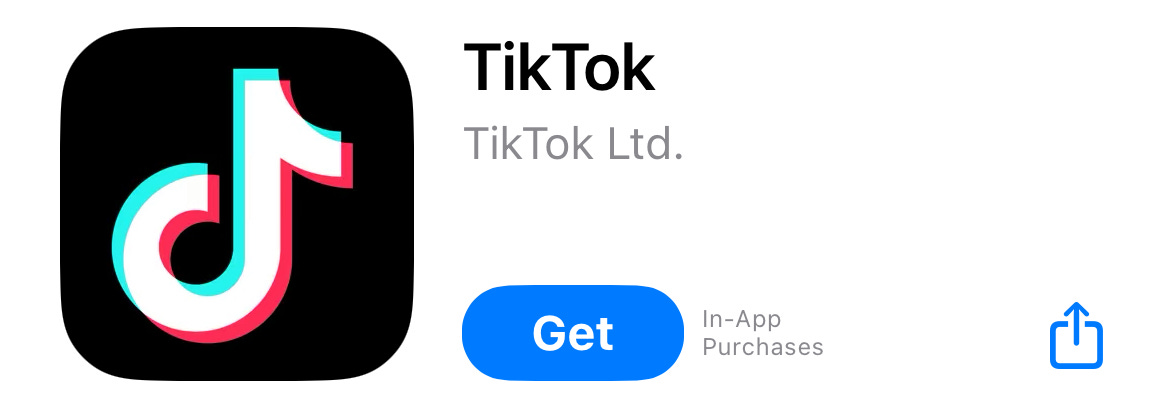
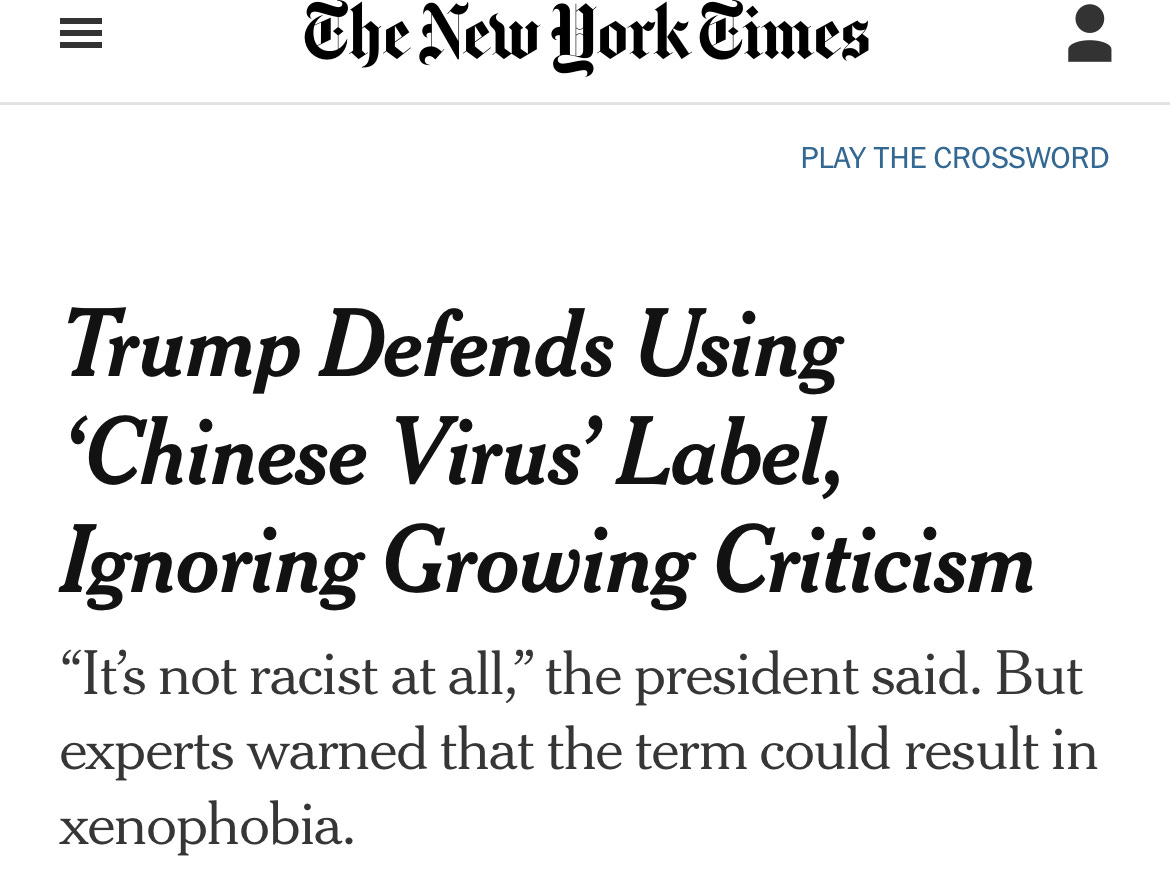
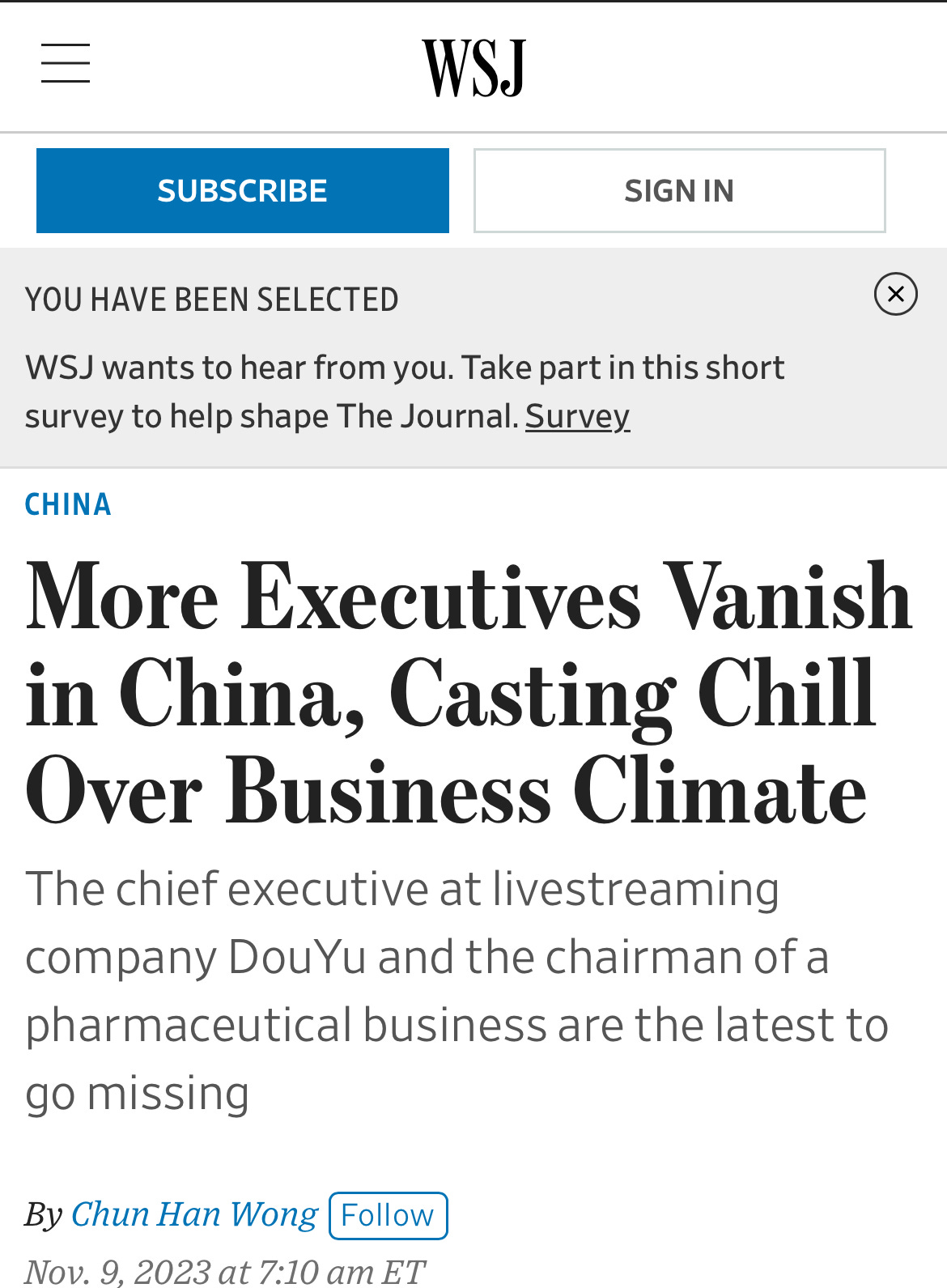
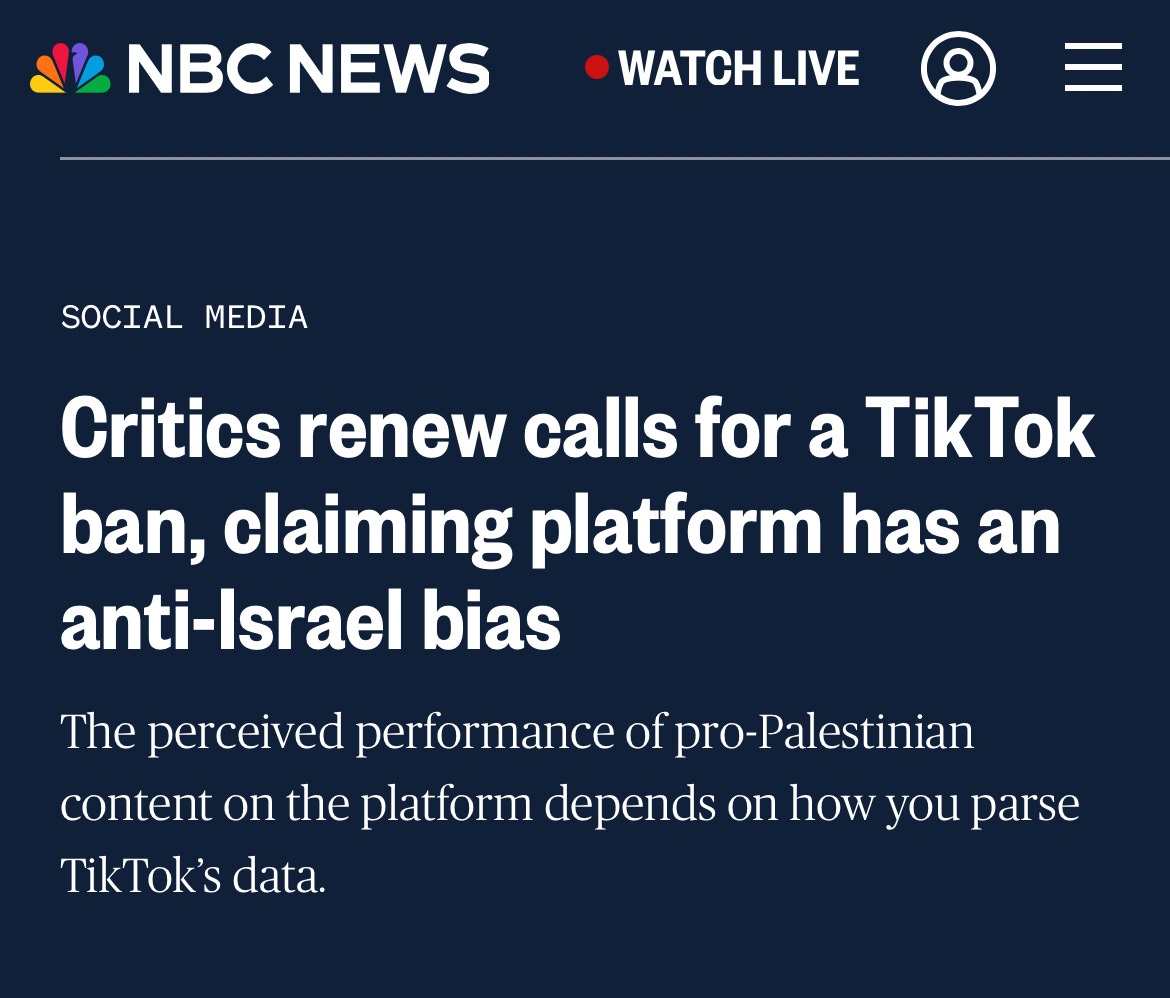
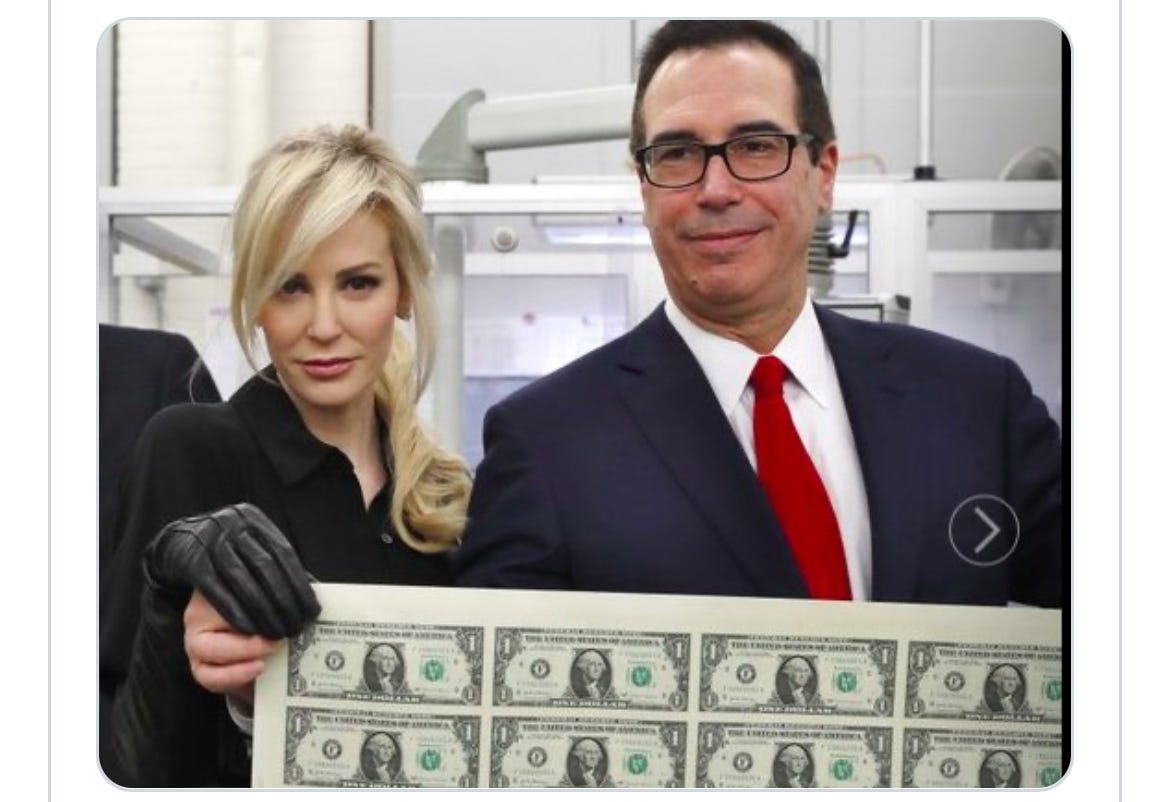
They will use this law to come after Twitter. The law allows them to censor anything they define as under foreign influence.
It's a trap, Alex. The bill contains a lot of vague language giving POTUS broad power to ban platforms in the interest of "national security". Just say no.